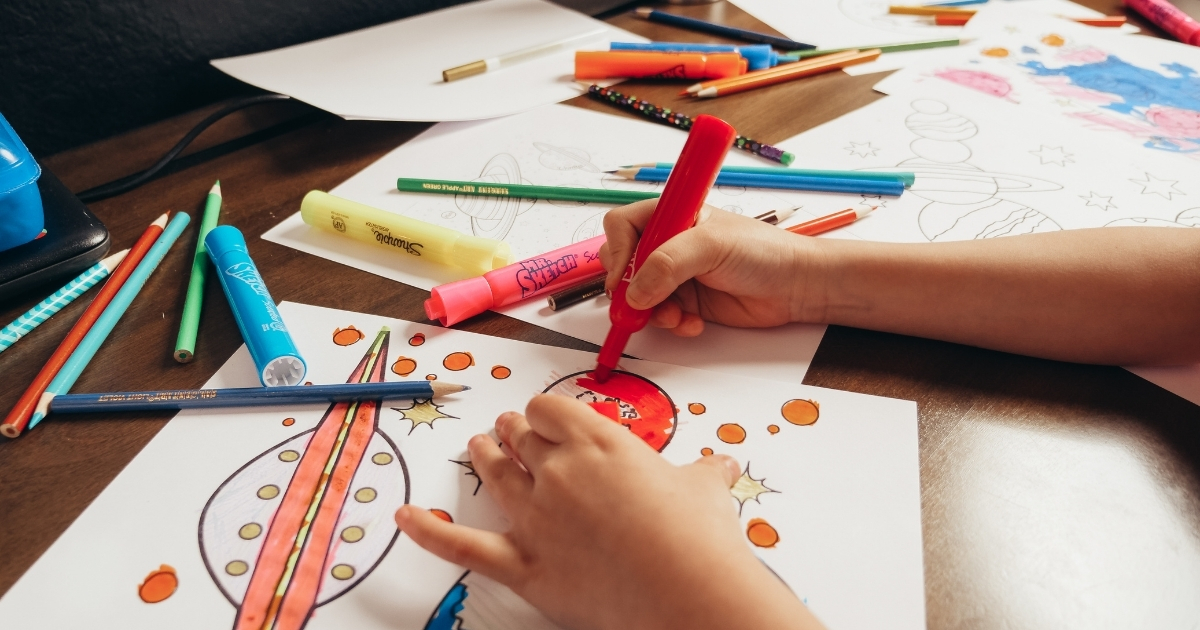Developing good habits is a key principle of Charlotte Mason’s educational philosophy. Mason believed that education is more than acquiring knowledge—it’s about shaping character. For homeschooling parents, applying Charlotte Mason habit training offers a framework for nurturing both life skills and values in children. This method emphasizes consistency, modeling, and the deliberate cultivation of habits to build a strong foundation for lifelong learning and personal growth.
Below, we’ll explore actionable ways to incorporate Charlotte Mason habit training into homeschooling. By focusing on practical habits, maintaining a nurturing environment, and instilling principles of personal responsibility, you can integrate habit-building into your daily homeschooling routine.
The Core Principles Of Charlotte Mason Habit Training
At the heart of Charlotte Mason’s philosophy is the idea that “habit is ten natures.” Mason viewed habits as a second nature that shapes our behavior and choices over time. The foundational principles of her habit training approach involve:
- Intentionality: Habits are deliberately formed through repetition and clear expectations.
- Consistency: Daily practice and reinforcement help habits become almost automatic.
- Environment: A child’s surroundings, including family dynamics, play a key role in fostering positive habits.
- Modeling: Children learn through imitation. Parents and educators must embody the behaviors they wish to instill.
Understanding these principles makes it easier to integrate habit training into your homeschooling routine, ensuring that it aligns with your educational values and goals for your child. Below, we’ll break this down into actionable strategies.
Habits To Focus On In Homeschooling
Every family is unique, which means the habits you prioritize as part of your homeschooling will depend on your specific needs. However, the following categories are universally beneficial and align with Charlotte Mason’s philosophy:
- Personal Discipline Habits
Discipline is the backbone of effective homeschooling, and encouraging self-discipline allows kids to take ownership of their daily tasks.
- Time management: Teach children to organize their day by building consistent routines. Create a visual schedule they can refer to, helping them learn planning and prioritization.
- Focus and attention: Use short bursts of concentrated effort followed by breaks, as Mason advocated for focused lessons. Gradually increase the time spent on tasks to strengthen their attention span.
- Task completion: Instill the habit of finishing one task before starting another. Use small, manageable steps to show progress and build a sense of accomplishment.
- Learning-Related Habits
Developing a love of learning is essential to homeschooling success.
- Curiosity and inquiry: Encourage your child to ask questions and explore ideas through open discussions.
- Reading and narration: Implement “narration,” a Charlotte Mason hallmark, whereby children retell what they’ve read to improve comprehension and retention.
- Observation: Inspire children to take notice of the world around them, whether through nature walks or art studies. Observing details builds awareness and critical thinking skills.
- Responsibility and Character Habits
Teaching responsibility transforms how children approach not only schoolwork, but life in general.
- Chores and household contributions: Assign age-appropriate chores to instill a sense of responsibility and teamwork. For younger children, this can start with small duties like tidying their learning space.
- Kindness and empathy: Teach children to recognize and respond to others’ emotions through role-playing scenarios or sharing books that explore moral themes.
- Honesty and accountability: Reinforce the importance of owning up to mistakes and seeing them as opportunities for growth. Celebrate honesty with positive reinforcement.
- Healthy Lifestyle Habits
Developing routines for healthy living ensures that your child thrives physically and emotionally.
- Nutrition and meal prep: Include kids in meal preparation to promote healthy eating and teach them valuable life skills.
- Physical activity: Build movement into your day with planned breaks, family yoga sessions, or outdoor play.
- Rest and mindfulness: Prioritize rest with regular bedtimes and encourage daily mindfulness practices, like deep breathing or quiet moments of reflection.
By focusing on these categories, you can foster habits that not only support homeschooling success but also set your child up for success in life.

Action Steps For Habit-Building In Homeschooling
Integrating habit training into everyday life doesn’t have to feel overwhelming. Here are strategies you can implement today:
- Start small: Focus on one habit at a time to create meaningful change without overwhelming your child. For example, begin by reinforcing daily reading before moving on to organizational habits.
- Use positive reinforcement: Praise effort and celebrate small victories to motivate children and help them associate good habits with positive outcomes.
- Connect lessons to daily habits: Incorporate habit training into the curriculum. For instance, during a science lesson, emphasize observation skills while studying plants or animals.
- Leverage natural consequences: Avoid nagging or micromanaging. Instead, allow natural consequences to teach lessons. If a child forgets to pack their art supplies for a project, experiencing the inconvenience can motivate better preparation in the future.
- Be patient: Habits take time to form. Maintain a supportive attitude, even when progress feels slow.
- Visual tools: Make use of charts, checklists, or habit trackers for younger children. These tools help them see their progress and stay motivated.
Building A Habit Training Plan
Having a structured plan for habit training can ensure consistency and reduce stress for homeschooling parents. Here’s how to design one:
- Identify key habits: Start by choosing 2-3 specific habits you want to cultivate. Be clear about the desired behavior.
- Set clear expectations: Define what success looks like for each habit. Explain this to your child in simple terms.
- Establish routines: Add the habit to your daily schedule. For example, dedicate the first 15 minutes of your morning to practicing mindfulness or setting goals for the day.
- Model behaviors: Remember that “actions speak louder than words.” Demonstrate the behaviors yourself to reinforce their importance.
- Evaluate progress together: At the end of each week, take time to review. Use this opportunity to celebrate successes and set goals for improvement.
- Reward consistency: Build in small rewards, like extra free time, to recognize consistent effort.
This ongoing process ensures that habit training becomes a natural part of your homeschooling structure.
The Role of the Homeschooling Environment in Habit Training
Creating a supportive environment is essential to successful habit-building. Practical changes in your homeschooling space can make a significant difference in forming habits over time.
Start by making homeschooling areas organized and free of distractions. Clutter not only makes it hard to focus but can also hinder the development of personal responsibility in keeping spaces tidy. For younger children, providing visuals like labeled bins can encourage organizational habits.
Additionally, time management habits thrive in a predictable environment. Designate areas for specific activities—reading corners, art tables, or outdoor learning spots. Consistency in the use of these spaces reinforces habits linked to specific tasks, such as reading in the morning or completing nature journaling before lunch.
Lastly, cultivate an atmosphere of encouragement and warmth. Habits grow best in an environment where children feel safe to try, fail, and try again. Gentle reminders and enthusiasm will help your child associate habit training with positive experiences.
Navigating Challenges In Habit Training
Despite your best efforts, you may encounter setbacks during the habit-training process. Resistance, forgetfulness, and inconsistency are common hurdles. Here’s how to manage them:
- Address resistance gently: If your child resists forming a certain habit, empathize with their frustration rather than forcing compliance. Explain how the habit will benefit them in the long run, and aim to make it more engaging or interactive.
- Break tasks down: Sometimes, children avoid habits because they seem overwhelming. Simplify habits into smaller, more manageable steps your child can feel confident tackling.
- Stick to routines: Disruptions to your daily schedule can throw off progress. Try to maintain consistency even during busy times with simplified versions of your habits.
- Revisit habits regularly: Many habits require maintenance. Revisit established habits occasionally to ensure they remain strong—especially after vacations or long breaks in routine.
Overcoming these challenges is part of the process. Approach setbacks with patience and flexibility to maintain long-term success.
By applying the insights above, you can use the Charlotte Mason method of habit training to foster structure, responsibility, and joy within your homeschooling routine.




